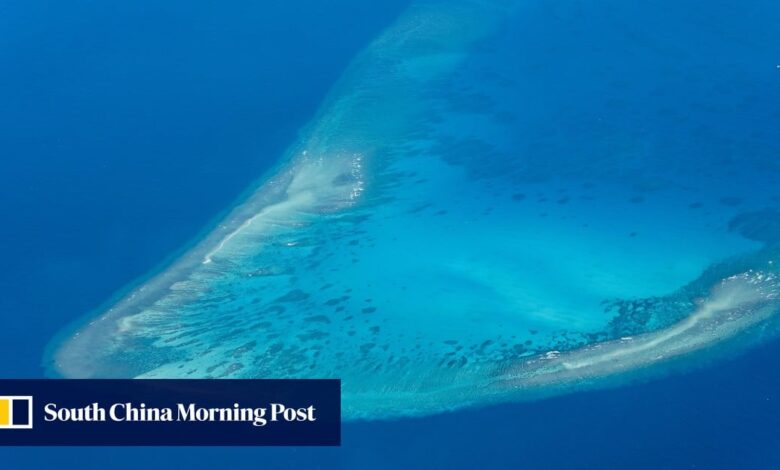South China Sea: Philippines may file case against China before international tribunal over alleged damaged corals

[ad_1]

The coastguard this week released a video following underwater inspections of Iroquois Reef and Sabina Shoal, which Manila claims as its territory, revealing “severe damage” to the marine ecosystem.
The force said it also found dead corals that were cleaned and crushed before being dumped into the seabed in those areas where Chinese fishing boats had been spotted in recent months.
It added that experts from the University of the Philippines would be roped in to study the damaged corals to ascertain if reclamation activities were responsible for the environmental degradation.
Justice Secretary Jesus Crispin Remulla said the government had a “lot of evidence” against China’s activities that adversely affected the ecology of the resource-rich waterway.
He declined to elaborate on which international tribunal Manila would lodge the case with.
While other countries claiming the sea have also developed parts of the contested waters, China has undertaken extensive infrastructure projects, including constructing runways, ports and radar systems, on the islands.
South China Sea not just about US-China rivalry, Philippines says
South China Sea not just about US-China rivalry, Philippines says
In 2002, Beijing signed a non-binding “declaration of conduct” with Southeast Asian nations that called on parties to refrain from “inhabiting on the presently uninhabited islands, reefs, shoals, cays and other features”.
Defence Secretary Gilberto Teodoro said he suspected foreign entities may have harvested corals to carry out island-building work but the assertions, including Chinese vessels’ link to the incident, needed to be validated, the Philippine Daily Inquirer reported.
“We have to validate because according to the arbitral award, it’s a violation of the international treaty, the destruction of maritime livelihood particularly if the coral destruction is a cause of, or used for reclamation of artificial islands,” he said.
As the maritime discord over the South China Sea rages on, Japan’s ambassador to the Philippines Kazuhiko Koshikawa also expressed concern about the mass coral harvesting, calling it as “very alarming news”.
“Our oceans are the lifeblood of our planet, and coral reefs are its colourful heartbeats. Let’s preserve and protect these vital ecosystems for generations to come,” he wrote on X, formerly known as Twitter.
Beijing hit back at the diplomat, accusing him of “spreading disinformation”.
“Oceans are indeed the lifeblood of our planet. So stop the release of contaminated nuclear water from Fukushima,” the Chinese embassy in Manila said on X, referring to Tokyo’s decision to discharge treated radioactive wastewater from the tsunami-crippled nuclear power plant.
US envoy to Manila MaryKay Carlson said the marine habitat damage “harms ecosystems and negatively affects lives and livelihoods”, adding Washington was working with its friends, partners and allies to protect the Southeast Asian nation’s natural resources.
[ad_2]
Source link




